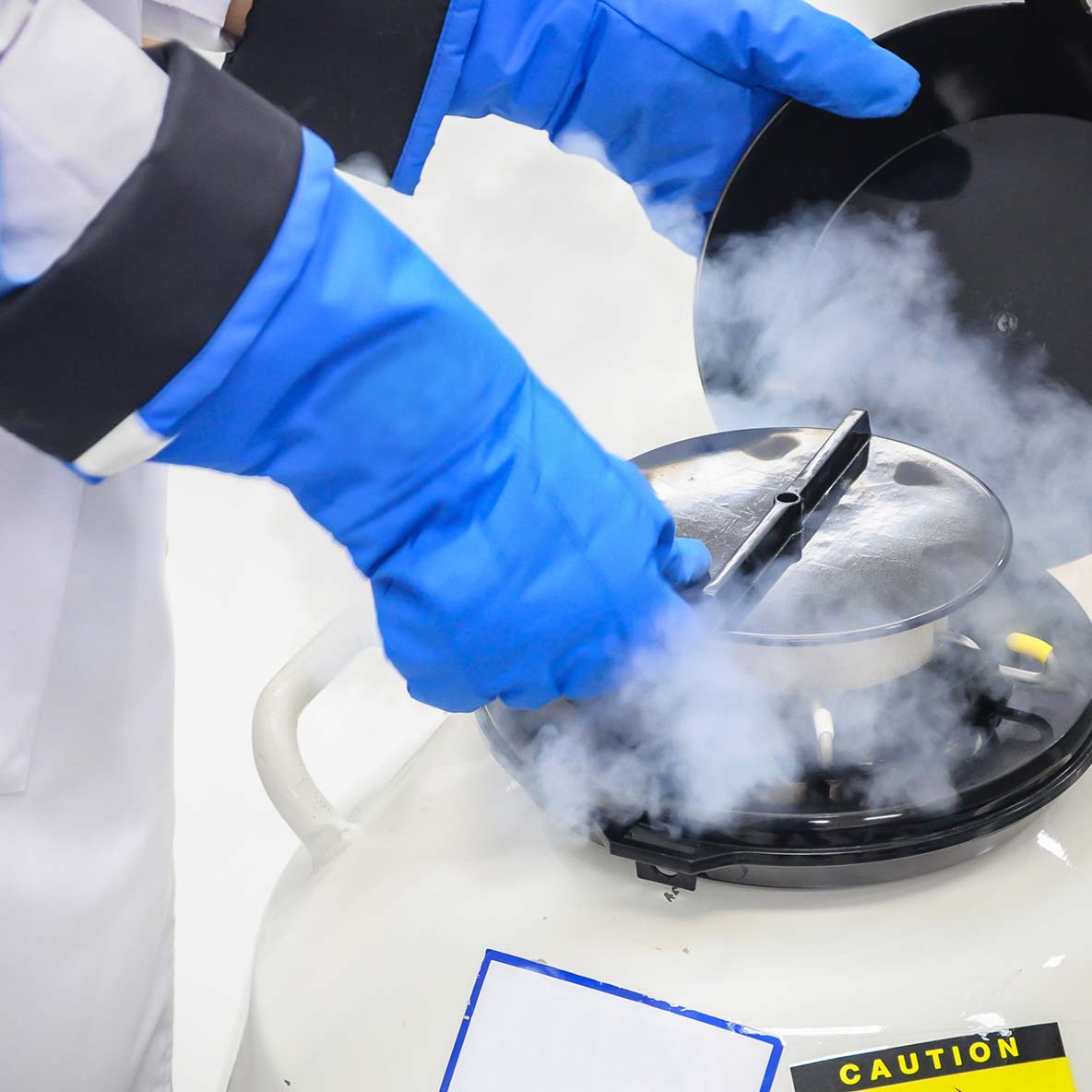 مركز جنين لعلاج العقم وأطفال الأنابيب – Ganin IVF Clinic
مركز جنين لعلاج العقم وأطفال الأنابيب – Ganin IVF Clinic
For many people, building a family is a cherished dream. But timing isn’t always on our side. Cryopreservation, the process of freezing reproductive cells and embryos for later use, offers a valuable tool to preserve fertility options. Let’s delve into the world of cryopreservation and explore the freezing of embryos, oocytes (eggs), and sperm.
Cryopreservation utilizes ultra-low temperatures (around -196°C) and special protective solutions (cryoprotectants) to suspend biological materials in a state of suspended animation. This effectively pauses cellular activity, allowing for long-term storage without compromising viability.
Embryos: These are fertilized eggs that have undergone cell division for a few days. Cryopreservation of embryos is often used alongside in vitro fertilization (IVF) treatments. Extra high-quality embryos created during an IVF cycle can be frozen for future implantation attempts, reducing the need for additional stimulation medications in additional embryo freezing allowing delay of embryo transfer in another cycle to decrease the risk of ovarian hyperstimulation syndrome.
Oocytes (Eggs): Oocytes, or eggs, are the female reproductive cells. Cryopreservation of oocytes allows women to preserve their fertility for future use. This can be particularly beneficial for those facing medical treatments that could impact egg quality or quantity, or for those who wish to delay pregnancy for personal reasons.
Sperm: Sperm cryopreservation is a well-established technique. Sperm can be frozen for extended periods and used in various fertility treatments like intrauterine insemination (IUI) or IVF. This is a popular option for men undergoing treatments that could affect sperm production or for couples who want to preserve their fertility for later use.
The specific procedures for cryopreservation vary depending on the cell type being frozen. However, they generally involve:
Cryopreservation success rates have improved significantly in recent years. However, it’s important to understand that it’s not a guarantee of pregnancy. Factors like age and initial cell quality can influence success rates.
Here are some additional considerations:
Buhaira Corniche. Emirates Tower. In front of Al Majaz Theater. Tenth floor, Sharjah, United Arab Emirates
WhatsApp us